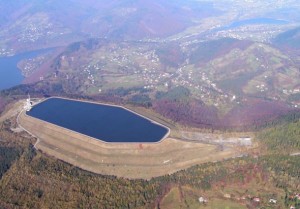Wednesday, April 29th, 2015
Frank Newport, - The Gallup Organization
Stephan: I grew up in a U.S. in which families felt as a kind of cultural universal that whatever might happen to individual families in general each generation would do better off than the one before it. That is no longer true, and I think it is a deeply painful wound in the collective gestalt.
PRINCETON, NEW JERSEY — Americans are considerably less likely now than they were in 2008 and years prior to identify themselves as middle class or upper-middle class, while the percentage putting themselves in the working or lower class has risen. Currently, 51% of Americans say they are middle class or upper-middle class, while 48% say they are lower class or working class. In multiple surveys conducted from 2000 through 2008, an average of more than 60% of Americans identified as middle or upper-middle class.

Gallup began asking this five-part social class question in 2000. In that year, and at several points since, a high of 63% of Americans identified as either upper-middle or middle class. The average percentage placing themselves in the two middle-class categories between 2000 and 2008 was 61%.
Gallup didn’t ask the question between 2009 and 2011, but in 2012 and again this year, the combined middle-class percentage dropped significantly, to 50% and 51%, respectively. On the other hand, the percentage of Americans identifying as working and lower class rose to 47% and 48%, up from a low of 33% in 2000.
There are many ways researchers measure subjective social class. This particular question […]
1 Comment
Wednesday, April 29th, 2015
Stephan: $1.3 billion just disappeared. And then there were the pallets of $100 bills shipped to Iraq, several billions worth, all nicely shrink wrapped, straight from the New York Federal Reserve. They just disappeared. A billion here, a billion there, pretty soon it's real money. How many hungry American kids could have been fed with that money? How many wounded vets could have been treated? How many elderly could have been given decent housing? A nation is what it spends its money on.

A gun from the Panzer Howitzer platoon, Kamp Holland, Tarin Kowt, June 14, 2007.
Credit: David Axe
WASHINGTON — A total of $1.3 billion that the Pentagon shipped to its force commanders in Afghanistan between 2004 and 2014 for the most critical reconstruction projects can’t be accounted for by the Defense Department, 60 percent of all such spending under an emergency program, an internal report released Thursday shows.
About 70 percent of the $100 billion the United States has spent to rebuild Afghanistan during 13 1/2 years of war has gone through the Pentagon, with the rest distributed by the US Agency for International Development and other civilian departments. A small portion of the Pentagon’s money went directly to American military officers there in a bid to bypass bureaucracy and rush the aid to urgently needed roads, bridges, schools, hospitals, water-treatment plants and other essential infrastructure.
A yearlong investigation by John F. Sopko, the US special inspector general for Afghanistan […]
1 Comment
Wednesday, April 29th, 2015
Paul Brown, - Truthdig/Climate News Network
Stephan: Energy storage is the leverage point in the transition into the non-carbon era. Great fortunes are going to be made solving this problem. Proving it is entirely possible to make wealth in the service of wellness.

A storage reservoir for a pumped-water hydroelectricity plant on Zar Mountain in southern Poland.
Credit: Ongrys via Wikimedia Commons)
LONDON — Inventors are in a race to find the best way of storing electricity to make the most of renewables and cut the use of fossil fuels.
Currently, when more power than needed by consumers is produced by sources such as wind turbines or solar panels, some of the electricity is wasted. But that is changing.
Governments have realised that one of their biggest challenges in cutting the use of fossil fuels is to store surplus electricity for use at peak times.
At present, coal and gas plants are left ticking over or running at below capacity, ready to be turned on to full load to meet peak demand. This greatly adds to greenhouse gas emissions.
The UK’s Parliamentary Office of Science and Technology believes that energy storage has vast […]
1 Comment
Wednesday, April 29th, 2015
Karl Mathiesen, - The Guardian (U.K.)
Stephan: If you live on investment funds, or through a pension invested in funds you would do well to re-examine your financial situation. This article explains why I say that.

Many pension funds are ‘betting around 20-1 that either the fossil fuel company influence will last forever or their fund managers will bail them out of a crisis,’ says Julian Poulter.
Credit: Murdo Macleod for the Guardian
Almost half the world’s top pension funds are taking an ill-advised gamble on climate change, according to a financial thinktank.
The Asset Owners Disclosure Project’s (AODP) annual index of 500 of the largest global asset owners found that 232 of them had done little or nothing to protect their investments from the financial upheavals predicted due to climate change. (emphasis added)
Financial experts, including the president of the World Bank and the governor of the Bank of England, have warned that […]
1 Comment
Tuesday, April 28th, 2015
Kent Sepkowitz , - The Daily Beast
Stephan: Finally I am beginning to see the first signs of a desperately needed public conversation on the ethical issues raised by the Homo Superior Trend. In my view this trend is going to continue and gain momentum, and I expect that the uber-rich will be early adapters because if you could make your child beautiful, athletic, ultra smart, and disease free, and you had the money to pay whatever it cost to do that, wouldn't you do it, particularly if those benefits would pass on to their children? What really concerns me is the rise of Homo Superior, and I don't know how to stop it.

Credit: The Daily Beast
A research team in China genetically engineered human embryos this week. Beyond unethical, the practice adds fire to an already heated issue: reproductive freedom.
That uneasy nether-realm where genes and ethics meet up with possibly mad scientists was exposed again this week as China announced they were “editing” the genes of human embryos.
Immediately and convincingly, scientific leaders from the U.S. stepped up to declare this to be a bad idea and even a very bad idea—though not because they were not curious about what experimentation could reveal. Actually I suspect they are itching to do the same sort of work just to see what happens—a basic and ubiquitous childlike curiosity resides at the core of any decent scientist. Rather they, like any watcher of Jurassic Park, are worried about the law of unintended consequences. What if something goes wrong and we make a 40-foot tall linebacker who eats people and ozone for lunch?
The entire enterprise is extremely sci-fi still, easily […]
No Comments
















